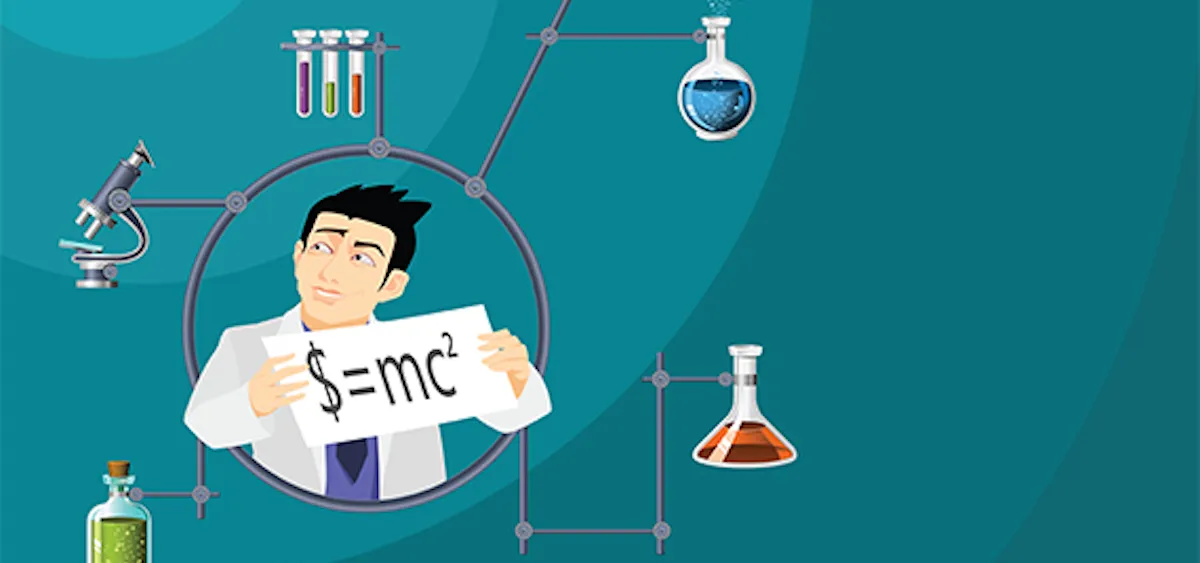Pressure, fraud, and unethical practices haunt Chinese academia
Until October of 2014, Fang Zhouzi (方舟子), China’s “science cop”, had an impressive public profile. He had built his reputation tussling with powerful figures ranging from wealthy snake-oil salesmen peddling their wares as traditional Chinese medicine to fraudulent academics and negligent physicians.
After posting an essay critiquing the comments made by a popular nationalist blogger, Fang vanished from Weibo, but can still be found on Twitter, raging against the state of China’s scientific sector. His fan base on Weibo had been in the hundreds of thousands, a testament to how many people are frustrated by the fakery which plagues in China’s science and academic sectors, which in turn is driven by pressure to perform, poor metrics for measuring research success, and a lack of oversight throughout academia.
It’s no surprise that a “science cop” can earn so many fans. China’s scientists and researchers are overworked and unappreciated and are often forced to resort to shortcuts. Aside from relatively low wages, career prospects are often incredibly limited. It’s publish or perish; but few have the time for enough of the former, often they must teach classes as well as write papers and conduct research if they want to get promoted or advance in their career. This just leaves connections as a sure route to success, but these can be fickle—in one high profile incident in December, 2015 a young lecturer publicly slapped the face of the dean of Sun Yat-sen University in Guangzhou in retaliation for allegedly being blocked from applying for professor status.
Consider, China’s 2015 winner of the Nobel Prize for Medicine, Tu Youyou (屠呦呦). In the field of Traditional Chinese Medicine, (TCM) she was at once embraced and shunnedas she used scientific methods to isolate the artemisinin malaria treatment, effectively carving it away from broader TCM theory. Despite the fact that she is widely respected as having made a groundbreaking humanitarian contribution to science, she lacks any impressive titles within China, and when top science and academic bodies released their rankings for 2015, Tu, a quiet, diligent outsider, was not on any of them—further fuel for the argument that scientific success rests more on connections than science.
And to get those connections, one must have papers published.
So when a researcher, desperate for bylines on respected papers, searches for a journal online and the country’s most popular search engine Baidu helpfully offers direct contact details for publishing agents at the top of the page, the temptation to take these shortcuts is pretty strong. “Years of experience”, a top entry reads. “Guaranteed publishing, low price, safe!”
Safe? One can’t help but wonder exactly what these agents are offering.
MARKET FOR BYLINES
When TWOC posed as a scientist and inquired with one of the top publishing services about getting a fake article on the state of research into Parkinson’s disease inserted into magazines, the agent said that, for a fee of 8,800 RMB, the article could be placed in a Guangdong journal, while another magazine with a higher profile had a spot available for 9,900 RMB. The agent did say that the quality of the article would need to suit the journal, but that they could help with editing.
Theoretically, giving the agency the benefit of the doubt, this had not crossed the line into unethical behavior, but their suggestion that they had “priority pages” reserved in the magazines for customers suggested cozy relationships between agents and magazine editors and some serious issues with the article selection processes.
Science magazine took this line of inquiry much further.
An in-depth investigation by the magazine over five months in 2013 revealed how fraud in the industry goes much deeper than priority pages. Papers could be bought from authors who had already written them, but a more common offer was a co-authorship byline on already written papers.
“You only need to pay attention to your academic research.The heavy labor can be left to us. Our service can help you make progress in your academic path!” Science quoted one agency, Wanfang Huizhi, as saying.
Science followed a paper that had been submitted to Wanfang Huizhi, in which the authorship was changed several times before publication. The company denied wrongdoing, saying that seemingly incriminating offers in fact, did not possess the appropriate company seal. In any case, this was merely one agency among many.
At the heart of the industry in the scientific sector lies demand for papers that show up in the Science Citation Index (SCI), an index by publishing giant Thomson Reuters that, in China at least, serves as a proxy for relevance in the scientific publishing sector. Without SCI papers published, it’s almost impossible for a Chinese scientist to achieve fame, fortune or professional respect.
The thing is, it isn’t just a matter of buying a paper authorship. Well, not exactly. The best magazines have quality controls and academics aren’t likely to give up an entire paper which used original, verifiable science. The impact factor of Chinese publications is relatively low, so scientists tend to opt for international publications which require English. This sometimes necessitates the use of translators, so this opens up the murky area of how ethical the translators may be.
There are a number of ways around this.
There are certain key ways that fraudulent scientists try to surmount the obstacles in their way.
The first is co-authorship. This means the actual scientist who worked on the project isn’t “giving up” their paper authorship, rather they are sharing it with someone who didn’t write the article, and no doubt making some decent bucks on the side. According to the Science investigation, 90,000 RMB was one quoted price for co-authorship on a cancer paper in an international publication, but the price became significantly cheaper when there were three or more authors.
“Peer Pressure” is a feature story from our newest issue, “Internet Celebrity”. To read the whole piece, become a subscriber and receive the full magazine. Alternatively, you can purchase the digital version from the iTunes Store.












